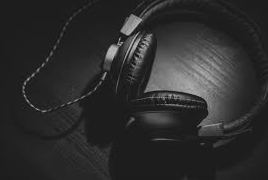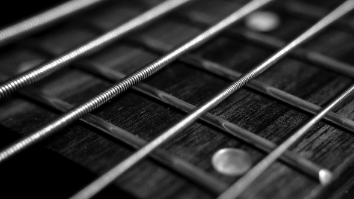Table of Contents
“I would teach children music, physics, and philosophy; but most importantly music, for the patterns in music and all the arts are the keys to learning.” – Plato
edCircuit:
In December of 2014, Time Magazine reported that music has the power to improve literacy skills. They explained that when children learn to play music, their brains begin to develop “neurophysiological distinction” between certain sounds which help improve literacy skills. These newly developed skills lead to an increase in academic achievement. Nearly a year later, this research remains true. Eric Hagen from ABC Newspapers wrote that “it’s never too early to get your children engaged in music.” A sentiment which I strongly agree with.
Early childhood is a critical period for brain development. 90% of the human brain is developed within the first 5 years of life. Dr. Clarice Wilson, director of Music Together in the Valley, explained that music isn’t just for enjoyment. Singing, moving to music and playing music forces the brain to utilize more parts, meaning that the more those parts are used, the more strengthened they become. Not only is music education for all ages fun for students, but it increases intellectual capacity.
With so much positive research praising the power of music education, why are schools still hesitant to integrate music into the core curriculum?
Introduction | Meghan Keates
At a Glance:
- Actively learning to play an instrument can help a child’s academic achievement
- 90% of the brain is developed in early childhood; music uses more parts of the brain
- The National Association of Music provides criteria for what makes an exceptional music teacher
Around the Web:
This Is How Music Can Change Your Brain
Melissa Locker | Time
There’s little doubt that learning to play a musical instrument is great for developing brains.
Science has shown that when children learn to play music, their brains begin to hear and process sounds that they couldn’t otherwise hear. This helps them develop “neurophysiological distinction” between certain sounds that can aid in literacy, which can translate into improved academic results for kids.
Many parents probably read the above sentence and started mentally Google-ing child music classes in their local area. But if your kid doesn’t like learning an instrument or doesn’t actively engage in the class–opting to stare at the wall or doodle in a notebook instead of participating–he or she may not be getting all the benefits of those classes anyway.
A new study from Northwestern University revealed that in order to fully reap the cognitive benefits of a music class, kids couldn’t just sit there and let the sound of music wash over them. They have to be actively engaged in the music and participate in the class. “Even in a group of highly motivated students, small variations in music engagement — attendance and class participation — predicted the strength of neural processing after music training,” said Nina Kraus, director of Northwestern’s Auditory Neuroscience Laboratory, in an email to TIME. She co-authored the study with Jane Hornickel, Dana L. Strait, Jessica Slater and Elaine Thompson of Northwestern University.
To read more visit Time

Music education for the youngest minds
Eric Hagen | ABC Newspaper
It’s never too early to get your children engaged in music.
When children ages 5 and under are learning lullabies, moving and clapping to a beat and playing with egg shakers, tambourines, and drums from birth to kindergarten, it builds confidence, and it is developing their brain.BSL Readers Choice – Instory
“It’s just vital; 90 percent of the brain is developed in early childhood,” said Dr. Clarice Wilson, director of Music Together in the Valley. “When you’re singing and moving to the music, you’re using more parts of the brain than any other human activity they’ve been able to document.”
Wilson said that the Association of Children’s Librarians has stated that reading, writing, drawing, talking, singing and playing at very young ages improves literacy.
To read more visit ABC Newspaper

What makes a great music teacher?
Tony Mazzocchi | National Association for Music Education
Greatness in teaching is just as rare as greatness in any other profession. Although it’s impossible to offer a prescription of qualities in order to cultivate great music teachers, understanding these qualities can give all would-be teachers a standard of excellence to strive for, and guide schools and parents toward what they should look for in current and prospective teachers.
Here are just a few characteristic traits that I believe all great music teachers have:
Great teachers connect to their students on an emotional level. We all remember how teachers we respected made us feel. We remember the teachers who saw something special in us and identified with us on some level. Before we teach, we must show that we care — and there are many ways to do this. The best way is the one that comes natural, and for me that is humor — but it can be anything from eye contact, a strong sense of empathy, or something else that indicates that the teacher truly “sees” the needs of each individual student.
Great teachers don’t look to make everyone feel warm and fuzzy all the time. There are a lot of school music teachers who strive to have all of their students “like” them. They look to ensure that all of their students are happy and comfortable at all times, making sure that there is not too much effort involved with rehearsing and learning. These teachers usually run entire pieces of music and cover a lot of material in a short period of time –they tend to not “dig in” to small sections and have a laissez-faire approach to developing young musicians. Great teachers, however, command respect and are not afraid to stretch their students’ comfort zone in order to teach them how to strive toward achieving greatness.
To read more visit the National Association for Music Education





